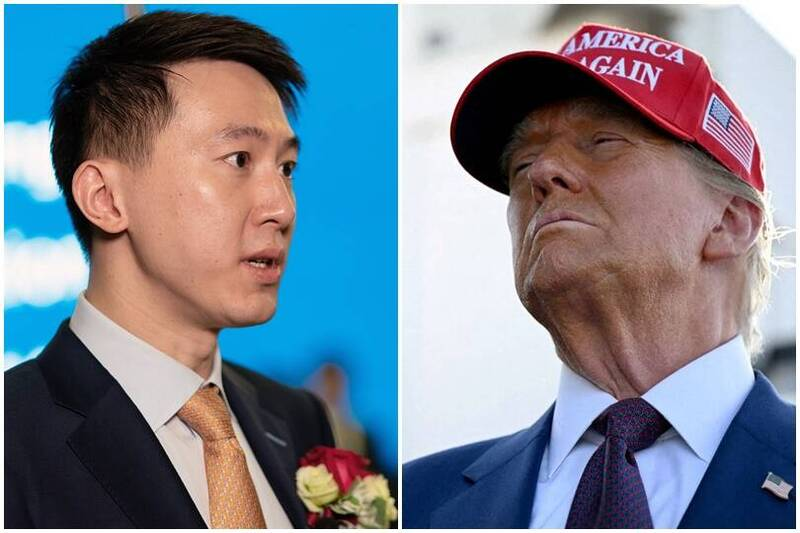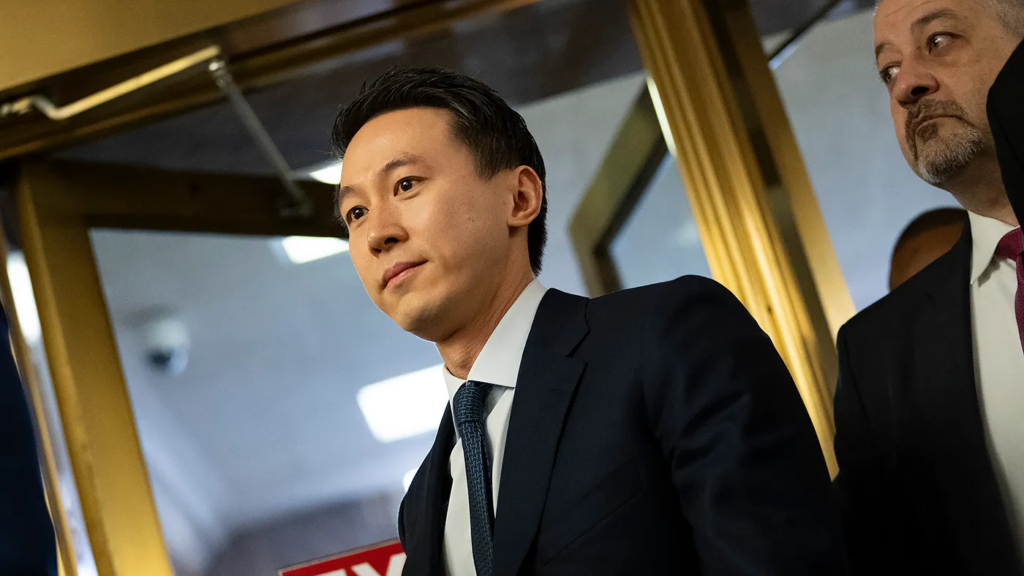TikTok CEO met Donald Trump at his Mar-a-Lago estate on Monday, as tensions rise over the looming January deadline that could see the app banned across the United States.
The meeting, first reported by CNN, comes as ByteDance, TikTok’s Chinese parent company, faces mounting pressure to cut ties with the app in the U.S. or face its forced shutdown.
This high-profile meeting highlights the urgency of the situation for TikTok and the potential ramifications for its millions of American users as the clock ticks toward January 19.
Trump’s apparent openness to discuss the future of TikTok marks a notable shift from his earlier stance during his first term in office, when he attempted to ban the app outright.
However, the meeting has also raised new questions about the role of geopolitics, digital communication, and the tech industry’s intersection with national security concerns.
Trump’s Changing Tone on TikTok and the Growing Stakes
During the meeting, Trump struck a surprisingly warm tone when asked about TikTok’s future in the United States. At a news conference earlier on Monday, he acknowledged the app’s widespread popularity among younger Americans and even credited it with contributing to his success in gaining support among the youth.
“We’ll take a look at TikTok. You know, I have a warm spot in my heart for TikTok, because I won youth by 34 points. And there are those that say that TikTok has something to do with that,” Trump remarked.
This statement is a marked departure from his previous efforts to eliminate TikTok from the U.S. market during his presidency. In 2020, Trump issued executive orders to ban the app, citing national security concerns over ByteDance’s ties to the Chinese government.
Read : Prepare to Remove TikTok From App Stores by Jan. 19: US Lawmakers to Apple, Google
However, those attempts ultimately faced legal challenges and were never fully implemented. Now, with President Biden signing into law a bipartisan bill requiring TikTok to sever its ties with ByteDance by January 19, the stakes have risen significantly for both TikTok and its millions of users in the U.S.
Read : Experts Warn Against Viral Castor Oil Trend on TikTok
Under the new law, TikTok must either be sold to a U.S.-based entity or face a nationwide ban. ByteDance and TikTok, however, have argued that a sale is logistically unfeasible, particularly as the Chinese government strongly opposes any sale of the algorithm that powers the app’s recommendation system.
This algorithm is widely seen as the core of TikTok’s success, enabling it to deliver highly engaging and personalized content to users. Without this technology, any U.S.-based version of TikTok would struggle to replicate its current influence and popularity.

The meeting at Mar-a-Lago underscores the significance of TikTok’s battle to remain operational in the United States. Trump’s willingness to engage with TikTok CEO Shou Chew signals that the app’s future may not be entirely sealed, despite the looming legal deadline.
Nevertheless, the path forward remains uncertain, with the potential for intervention from the Supreme Court or the incoming administration.
The Legal Battle: TikTok’s Last Efforts to Avoid a Ban
As the January 19 deadline looms, ByteDance and TikTok have been engaged in a fierce legal battle to delay or overturn the law mandating their separation.
Last week, a federal appeals court denied TikTok’s request to pause the law, delivering a significant blow to the company’s hopes of buying more time. In response, TikTok and ByteDance filed an emergency application with the Supreme Court on Monday, urging the justices to temporarily halt the law’s enforcement.
In their filing, the companies argued that enforcing the ban without further review would cause irreversible harm to TikTok’s operations and its millions of American users.
The application urged the court to make a decision by January 6, providing enough time for TikTok to coordinate with service providers to shut down operations in the United States if necessary. However, TikTok also pointed out that the “complex task” of shutting down the app’s platform would require careful planning and coordination.
TikTok’s filing further called for a 90-day delay in enforcement if a sale of the app was actively in progress by the deadline. This provision, included in the law, would provide a temporary reprieve for TikTok while negotiations continue.

However, TikTok maintains that a sale remains practically impossible given the Chinese government’s opposition to relinquishing the app’s algorithm. Beijing’s stance on the matter highlights the broader geopolitical implications of TikTok’s presence in the U.S. and its role as a symbol of Chinese technological influence.
For now, the Supreme Court’s decision could determine TikTok’s immediate future in the United States. If the court declines TikTok’s request for a pause, the company will face the enormous challenge of either complying with the law or shutting down its U.S. operations entirely.
Such a shutdown would have far-reaching consequences, affecting not only TikTok’s business but also the millions of content creators, small businesses, and users who rely on the platform for entertainment, income, and communication.
Implications of a TikTok Ban on U.S. Users and Businesses
A potential TikTok ban in the United States raises significant questions about its impact on the digital ecosystem, content creation economy, and the broader social media landscape.
TikTok has become one of the most popular apps in the world, particularly among younger demographics, with over 150 million active users in the U.S. alone. Its short-form video format has revolutionized content consumption and fueled a new wave of influencers, entrepreneurs, and small businesses that rely on the platform to reach audiences.
For many creators, TikTok serves as a vital source of income and exposure. Small businesses, in particular, have leveraged the app’s algorithm to market products, build brand awareness, and connect with customers.
A sudden ban on TikTok would not only disrupt these businesses but could also leave a void in the social media space that competitors like Instagram Reels and YouTube Shorts would rush to fill.
From a cultural standpoint, TikTok has also become a hub for creativity, trends, and online communities. Its algorithm-driven content delivery allows niche creators to find their audiences and fosters a unique environment where viral trends can emerge organically. The loss of TikTok in the U.S. would mark a significant shift in the way users engage with social media and access content.

Moreover, the debate over TikTok’s ban has reignited discussions about data privacy, national security, and the role of foreign-owned tech companies in the U.S. market. While concerns about ByteDance’s ties to the Chinese government are at the heart of the ban, critics argue that singling out TikTok sets a dangerous precedent for digital platforms and international business.
Supporters of TikTok emphasize that the app’s data practices are no different from those of U.S.-based platforms like Facebook and Google, which also collect vast amounts of user information.
As TikTok’s future hangs in the balance, the meeting between Shou Chew and Donald Trump reflects the app’s ongoing efforts to secure its place in the United States. While Trump’s comments suggest a willingness to reconsider TikTok’s fate, the app still faces an uphill battle to navigate the legal and political obstacles in its path.
Whether through a delay, a sale, or a Supreme Court intervention, TikTok’s next steps will be closely watched by millions of users, businesses, and policymakers around the world.

